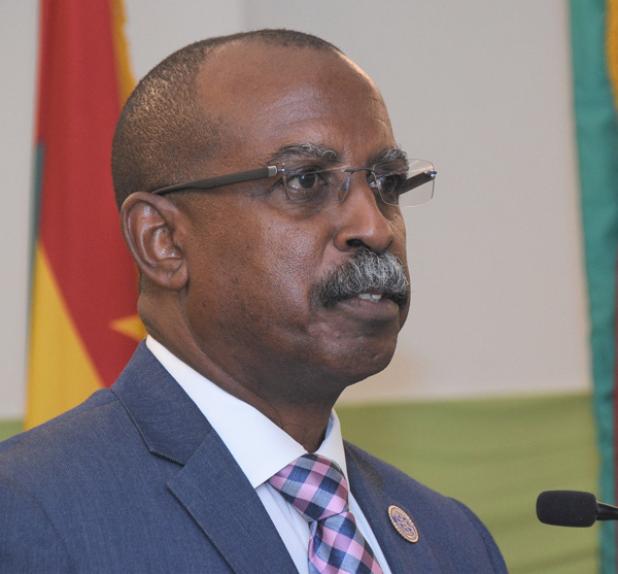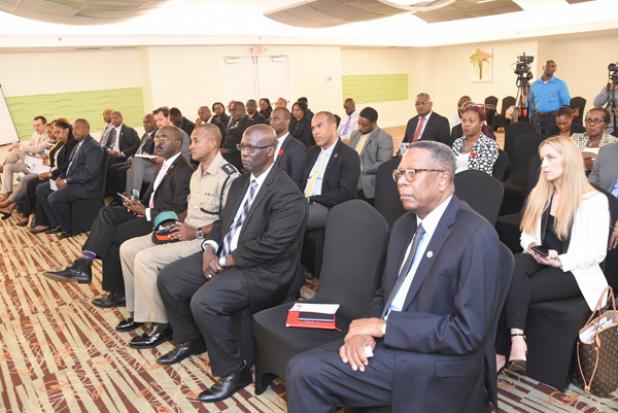
Executive Director of the Regional Security System (RSS), Captain Errington Shurland, as he delivered brief remarks at the project launch of the Development of a Maritime Security Strategy for the RSS held at the Radisson Aquatica yesterday morning.

Local, regional and international participants during the opening ceremony of the project launch of the Development of a Maritime Security Strategy for the Regional Security System held at the Radisson Aquatica yesterday morning.
Co-ordinated strategy needed
THERE can be no sustainable develop-ment without security, stability and peace.
This point was made by Executive Director of the Regional Security System (RSS), Captain Errington Shurland, as he delivered remarks at the project launch of the Development of a Maritime Security Strategy for the Regional Security System held at the Radisson Aquatica yesterday morning.
The strategies are being developed with financial assistance from the Caribbean Development Bank and technical assistance from the International Maritime Organisation and the Organisation of American States.
He espoused the view that comprehensive national maritime strategies and a co-ordinated regional strategy are needed, recognising that development and security go hand in hand.
Captain Shurland also told participants of the two-day workshop that the physical and geographical closeness of the islands in the region and shared maritime space means that security challenges are also shared. These include transnational organised crime, drugs and weapons trafficking.
“These shared challenges dictate that co-operation and information sharing between the RSS Member States are essential for maximising maritime and port security by essentially multiplying the capabilities and resources of any one State.
“Our maritime space is a source for economic development that needs to be secured for the benefit of generations to come. It is notable that maritime security is not simply about law enforcement and governance of a territorial sea or exclusive economic zone. It is about unlocking the growth potential of the Blue Economy,” he noted.
Captain Shurland stated that the oceans have a tremendous potential for boosting economic growth, employment and innovation as the Blue Economy encompasses ocean-based industries such as shipping, fisheries, renewable energies, maritime transportation, sea ports, tourism and marine biotechnology as well as its natural assets such as carbon dioxide absorption.
He told the high-level participants that national and regional maritime security strategies will complement the work being done by States as they seek to develop the Blue Economy.
“Work such as the Blue Growth Master Plan by the Government of Grenada, the 2018 study done by the Caribbean Development Bank titled ‘Financing the Blue Economy – A Caribbean Development Opportunity’, the Eastern Caribbean Regional Ocean Policy that is currently being reviewed by the OECS, and the Blue Economy Strategy being developed by the Government of Barbados.”
He stressed that this is important as maritime security is viewed as the enabler of the Blue Economy through safeguarding navigation routes, protecting rights over valuable marine resources and activities within claimed zones of maritime jurisdiction.
“Therefore, maritime security ensures good order at sea. The Blue Economy consequently emphasises the economic potential of marine resources (fishing, tourism-related industries and resource extraction). Thus, an expanded Blue Economy will create greater demand for maritime security capabilities,” he explained.
